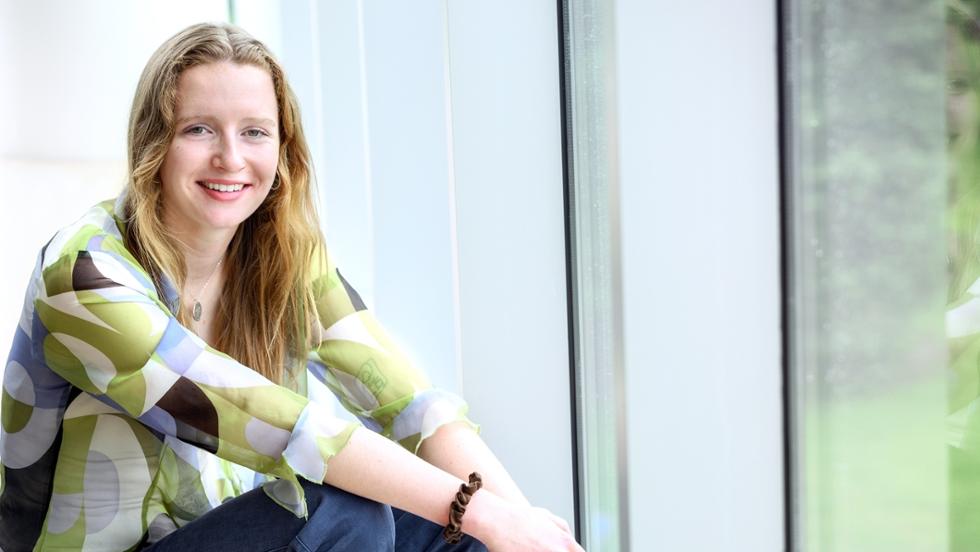
Robinson spent eight months during her junior year and subsequent summer living and working in Canterbury, New Zealand. She served as a conservation ranger before continuing her advisors’ joint research on climate action by interviewing farmers, community leaders, and politicians. Her research was supported by Hamilton’s Arthur Levitt Public Affairs Center.
Clare Robinson '25
Major: Interdisciplinary studies
Hometown: Philadelphia, Pa.
Reflecting on her findings, Robinson said, “Agriculture is a primary economic function of Canterbury and the backbone of these communities, but also the major carbon source — about 50% of the country’s total emissions. The government started massively cracking down on agriculture, and people are very frustrated about this.”
Her New York study involved speaking to community members and climate leaders about the implementation of the state’s ambitious renewable energy and carbon reduction goals, such as those included in the Climate Leadership and Community Protection Act.
“There’s a lot of resistance,” Robinson explained. “People feel like they’re not being heard.”
Robinson’s senior fellowship resulted in two papers dedicated to her two areas of study. Of her overall takeaways, Robinson reflected, “Community input and engagement from the ground level are so important. A lot of it is now driven from the top centralized state forces in the cities. People are feeling rejected and unheard. They feel like they lost all their local autonomy over land use, and that comes from historic systemic marginalization of rural communities.
My experience gave me a lot of confidence in myself as a learner and a researcher and helped me with resiliency and the ability to keep working hard even when it can be monotonous.
“Ultimately, this really slows the transition, which is detrimental to combatting climate change and cutting down state emissions,” she said. “Engaging communities makes them feel like they’re heard, which is both the right thing to do and will also help speed up a climate transition.”
Overall, Robinson found the Senior Fellowship experience equally challenging and rewarding. “My experience gave me a lot of confidence in myself as a learner and a researcher and helped me with resiliency and the ability to keep working hard even when it can be monotonous,” she said. “It was really eye-opening and exciting to watch the project transform throughout the year.”
Robinson will spend the upcoming year working at Glacier National Park as a backcountry youth educator. She will lead trips to engage students with the park and design workshops to educate the general public. Afterward, she hopes to spend more time abroad working in conservation before returning to academia for a master’s in environmental policy.
Reflecting on her journey ahead, Robinson cited her advisors Strong and Kucinskas as major inspirations. “Their interdisciplinary approach to environmental research brings together the hard science environmental changes that need to happen and how this affects the people most impacted by these policies,” Robinson said. “I would love to continue this [work] because it cannot be lost in the urgency to transition.”
Posted June 18, 2025


